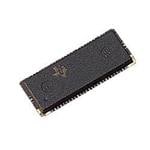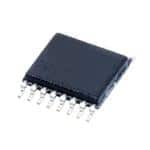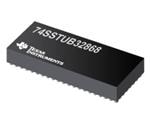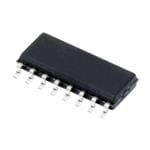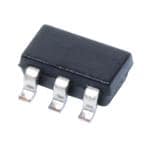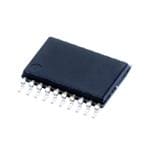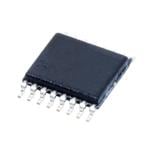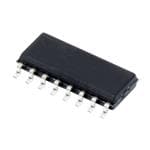STM32F427ZIT6 is a high-performance 32-bit microcontroller from STMicroelectronics, part of the STM32F4 series. It is based on the ARM Cortex-M4 core and is suitable for embedded applications that require high computing power and complex functionality. Below are the main features and a description of the STM32F427ZIT6:
Main Features
- Core:
- ARM Cortex-M4 32-bit RISC processor
- Clock speed up to 180 MHz
- Supports floating-point operations and DSP instructions
- Memory:
- 512 KB Flash memory
- 192 KB SRAM
- Peripherals:
- 50 general-purpose I/O (GPIO) pins
- 2 12-bit ADCs, each with 16 input channels
- 2 12-bit DACs
- 3 16-bit timers and 2 advanced timers
- 2 I2C interfaces
- 3 SPI interfaces
- 2 USART interfaces
- 1 USB 2.0 Full-speed device interface
- 1 USB 2.0 High-speed host/device interface
- 1 CAN interface
- 1 SDIO interface (for SD card interface)
- Power Management:
- Operating voltage range: 1.8V to 3.6V
- Low-power modes including sleep and standby modes
- Package and Pins:
- Package type: 144-pin LQFP (Low-profile Quad Flat Package)
- Operating temperature range: -40°C to 85°C (Industrial grade)
- Additional Features:
- Internal oscillator supporting multiple frequencies
- Watchdog timer
- Reset circuitry and power management functions
Application Fields
- Industrial Control: Such as factory automation, data acquisition, control systems
- Consumer Electronics: Including smart home devices, home appliances
- Automotive Electronics: For in-vehicle information systems, dashboards
- Communication Devices: Including wireless communication equipment, network devices
Feature Description
The STM32F427ZIT6 is a high-performance 32-bit microcontroller that combines a powerful ARM Cortex-M4 core with a rich set of peripherals, making it suitable for applications requiring high computing power and real-time control. It offers a wide range of peripheral interfaces and efficient power management features, excelling in industrial control, consumer electronics, and automotive applications. Its large Flash and SRAM memory enables handling of complex tasks, while its compact package and wide operating temperature range enhance application flexibility.

 Lead free / RoHS Compliant
Lead free / RoHS Compliant




